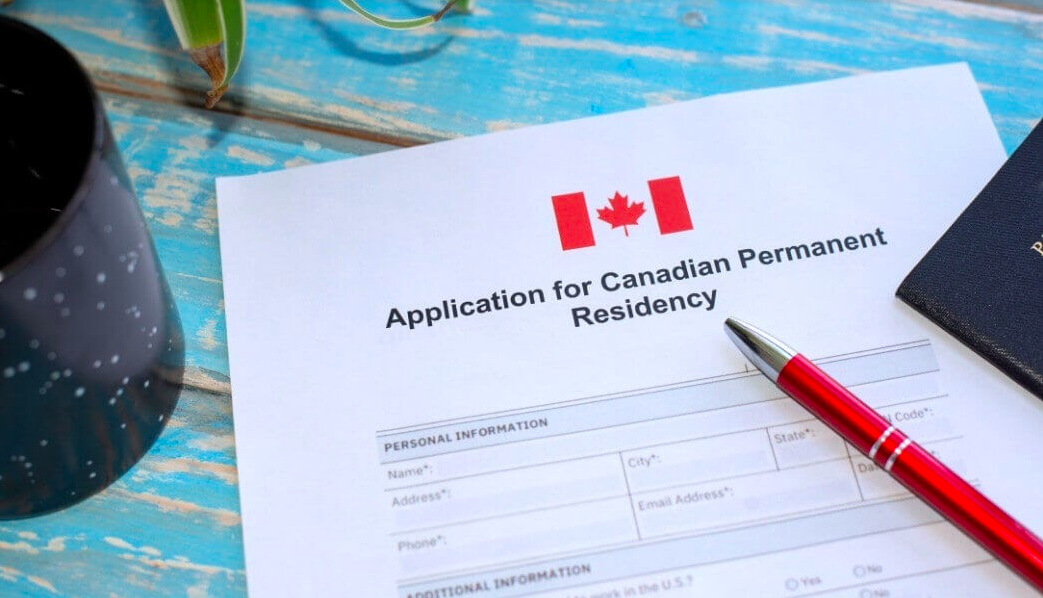Connect with our Canadian Immigration advisors
Top Mistakes to Avoid in PR Applications
- Admin
- Processing Times
- August 14, 2025

Applying for permanent residency (PR) in Canada is a significant step toward building a new life. However, even minor errors can delay or derail your application. To help ensure a smooth process, here are the top mistakes to avoid when submitting your PR application, along with tips to keep your journey on track.
1. Missing Eligibility Requirements
Before you begin, make sure you meet the basic eligibility criteria for your chosen PR program (Express Entry, Provincial Nominee Program, Family Sponsorship, etc.). Applying to the wrong category or failing to fulfill the minimum requirements—such as work experience, education level, or language proficiency—can result in an immediate refusal. Always double-check the specific requirements for the stream you’re targeting and confirm that you qualify before investing time and money in your application.
2. Incomplete or Inaccurate Documentation
Immigration authorities require precise and complete documentation to verify your identity, education, work history, and other relevant credentials. Common missteps include:
- Submitting photocopies instead of certified true copies
- Using outdated forms or checklists
- Omitting translations for documents not in English or French
- Providing inconsistent dates or details across documents
To avoid this, create a detailed document checklist, use the latest IRCC forms, and have all non-English or French documents professionally translated and certified.
3. Neglecting to Update Your Express Entry Profile
If you’re in the Express Entry pool, failing to update your profile with new job offers, language test results, or additional education can cost you CRS points. Even small increases in your Comprehensive Ranking System (CRS) score can mean the difference between receiving an Invitation to Apply (ITA) and waiting for another draw. Make it a habit to log in regularly and reflect any positive changes in your profile.
4. Submitting Language Scores That Have Expired
Most PR programs require valid language test results (IELTS, CELPIP, TEF, or TCF). These scores are typically valid for two years from the date of the test. Submitting expired results will result in delays or rejection of your application. Keep track of your test validity period. If your scores expire before you receive your PR, retake the exam and update your application as soon as possible.
5. Underestimating Proof of Funds
For Federal Skilled Worker and other economic classes, you must demonstrate that you have enough settlement funds to support yourself (and dependents) upon arrival. Many applicants underestimate the required amount or provide bank statements that don’t clearly show available balances. Always refer to IRCC’s current proof-of-funds table and provide:
- Official bank statements or letters
- Evidence of liquid assets (e.g., mutual funds) if applicable
- Precise English or French translations
6. Missing Medical or Security Checks
Health and security are critical components of the PR process. Failing to undergo a required medical examination by an IRCC-approved physician or missing security clearance documents (police certificates from every country you’ve lived in for 6+ months) can cause significant delays. Schedule these appointments early—waiting times can be lengthy—and upload results promptly when they become available.
7. Ignoring Spouse or Common-Law Partner Details
If you include a spouse or common-law partner in your application, you must provide their personal details, language test results, educational credentials, and proof of relationship. Omitting or misrepresenting any of this information may be considered misrepresentation, which can lead to refusal and possible bans from reapplying. Treat your partner’s section with the same thoroughness as your own.
8. Rushing Through the Application
Deadlines and submission windows can be stressful, but rushing often leads to simple errors—such as typos, missing signatures, or skipped questions. Take advantage of IRCC’s “Save and Resume” feature to work methodically, review each section carefully, and use checklists to confirm completeness before final submission. A well-prepared application is far less likely to be returned for clarification.
9. Incorrect Payment of Fees
Application fees must be paid in Canadian dollars and the exact amounts specified by IRCC. Using the incorrect payment method or miscalculating fees (for example, failing to account for the permanent residence fee) can result in your application being returned. Check the IRCC fee schedule, confirm all required fees, and save your payment receipts for future reference.
10. Failing to Track Your Application Status
Once submitted, your application enters a multi-stage process, which includes acknowledgment of receipt, examination, interview requests, and a final decision. Failing to respond to IRCC’s online portal notifications or ignoring additional document requests can cause unnecessary delays. Log in regularly to monitor status updates, and set email alerts to stay informed of any required actions.
Final Tips for a Successful PR Application
- Plan Early: Begin gathering documents and scheduling tests at least months in advance.
- Stay Organized: Use a dedicated folder (either physical or digital) to track every form, receipt, and piece of correspondence.
- Seek Clarification: When in doubt, refer to the official IRCC website or contact IRCC directly—avoid unreliable third-party information.
- Be Honest: Never withhold or misrepresent information; it can lead to bans or refusals.
- Keep Copies: Always keep copies of all submissions for your records.
By avoiding these common mistakes and approaching your PR application with diligence and care, you’ll maximize your chances of a smooth process and eventual approval. Good luck on your journey to becoming a permanent resident of Canada!



